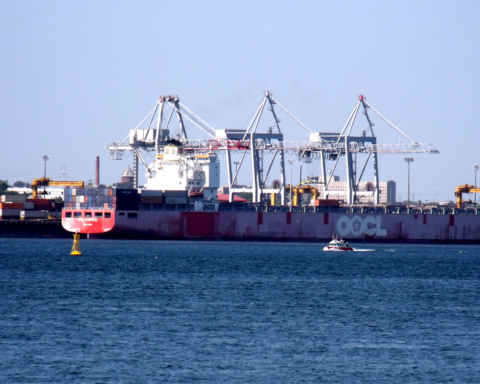He makes no promises, in keeping with his style. However, he listened attentively to the demands presented this morning by a large delegation of trade unions and workers, who went up to Palazzo Rosciano on the second day of a total strike, the tenth – in order of time – since the dockers decided to open the dispute with the reduction of shifts to every two hours.
The trade unions asked Mr. Guerrieri directly for definitive answers on a variety of issues.
The revision of the tariff system among port companies, the fight against temporary employment, and the restriction of overtime hours within the limits of current provisions are the key points of a specific action plan that the Port Network Authority had already declared that it intends to pursue to the parties concerned over the last few days, as part of an overall redefinition of the port work organizational model.
The Port Network Authority’s president listened and, while reiterating his bitterness at the failure of a negotiation that had going in the right direction, expressed his willingness to take action to try to reopen negotiations, inviting the unions to break off hostilities and present a new roadmap.
“I do understand the dockers’ discontent and, with it, the need to give workers answers,” he said, adding that he wanted to work to achieve tangible results in this sense.
“The battle for fair compensation for work done is sacrosanct in principle, but it has to be pursued in the right way and within the limits of the competences that the law assigns to Port Network Authorities,’ Mr. Guerrieri said , “’and with these assumptions, we believe that the time is ripe for a confrontation between terminal operators and port companies, in order to develop a common reflection on tariff systems in the port.
Mr. Guerrieri also confirmed that he would continue to carry out inspections in the port to verify compliance with the regulation on how port company personnel are employed, in addition to his commitment to restructuring ALP, the company authorized to exclusively supply skilled manpower to port companies.
On this last issue, the conviction is that a new Article 17 adapted to fit the new needs dictated by the market, can help to define organizational schemes useful for resolving most of the problems of precariousness in the port, including the issues workers at Intempo complain about, verifying the willingness of the business world to make its first commitments within a few days.
“These are all factors that move us towards achieving the best interests for the entire port community and which I will try to pursue regardless of how the dispute develops,” Mr. Guerrieri concluded.
Translation by Giles Foster




